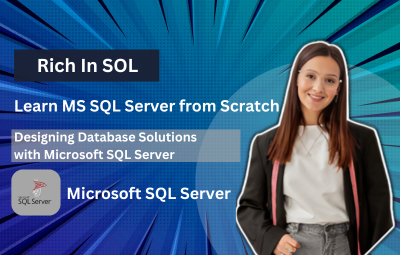An LMS (Learning Management System) instructor is a person who is responsible for creating and delivering educational content to students through an LMS platform. They use the platform to create courses, assignments, quizzes, and other educational materials that are used to teach students. The instructor may also interact with students, grade assignments, and provide feedback on their progress. The goal of an LMS instructor is to provide an effective and efficient learning experience for students using the LMS platform.
C Programing Language
- (0 Reviews)
- 0 students enrolled
C Programing Language
C is a foundational programming language celebrated for its simplicity, efficiency, and portability. Developed in the early 1970s by Dennis Ritchie at Bell Labs, it quickly became a staple for system programming and remains pervasive today. C's procedural structure, supported by functions, control structures, and versatile data types, facilitates efficient coding.
- (0 Reviews)
- 0 students enrolled
- 500.00₹
1000.00₹
- Course Includes
- Anytime, Anywhere
- Full lifetime access
- Access on mobile and TV
What learn
- The Top 25 Tips & Tricks that will make your work easier
- Tricks that will save you hours and hours of work
- How to Find The Explanation of Tools you don’t Understand Easily
- How to Open any PDF format and Edit it
Course Content
|
Use Automatic Text Replacement
|
mb | ||
|
Insert Placeholder Text
|
mb | ||
|
Use The Drop Cap Effect
|
mb |
|
Set The Custom Spell Check Dictionary Windows
|
mb | ||
|
Set The Custom Spell Check Dictionary Mac
|
mb | ||
|
Set The Spell Check Language Or Disable Spell check
|
mb |
|
stie Your Source With Researcher
|
mb | ||
|
Get Help A Writing A Resume From The Resume Assistant
|
mb |
Requirements
- A computer with Windows, Linux or Mac OS 4GB RAM (recommended) No prior knowledge is required! This course if for Absolute Beginners!
Description
C is a powerful and widely-used procedural programming language developed in the early 1970s by Dennis Ritchie at Bell Labs. It is renowned for its simplicity, efficiency, and portability. C is a compiled language, meaning that programs written in C are translated directly into machine code by a compiler before execution, resulting in fast and efficient code.
Key features of C include:
- Procedural Programming: C follows the procedural programming paradigm, where programs are structured as a series of procedures or functions. It provides features such as functions, variables, control structures (loops and conditionals), and data types (integers, floating-point numbers, arrays, structures, etc.) to facilitate procedural programming.
- Portability: C compilers are available for a wide range of platforms, allowing programs written in C to be easily ported across different operating systems and hardware architectures.
- Efficiency: C allows for low-level manipulation of system resources, such as memory addresses and hardware peripherals, through pointers and bitwise operations. This makes it suitable for developing system software, device drivers, and embedded applications where performance is critical.
- Standard Library: C Standard Library provides a set of functions for performing common tasks, such as input/output operations, string manipulation, memory allocation, and mathematical computations. These functions are specified by the ANSI C standard and are available on most C compilers, ensuring portability of code.
- Community and Support: C has a large and active community of developers who contribute to its growth and evolution. There are abundant resources available, including books, tutorials, online forums, and open-source projects, making it easy for developers to find help and guidance when working with C.
Recent Courses
- May, 16th 2024
- 0
MongoDB is a leading NoSQL database management system renowned for its flexibility, scalability, and performance. It stores d..
- Free
- May, 16th 2024
- 0
Microsoft SQL Server is a relational database management system (RDBMS) developed by Microsoft. It's known for its reliabilit..
- Free
- April, 22nd 2024
- 0
React is a popular JavaScript library for building user interfaces. With React, you can create dynamic and interactive web ap..
- 500.00₹
1000.00₹
- May, 15th 2024
- 0
PostgreSQL, often referred to as Postgres, is an open-source relational database management system renowned for its robustnes..
- Free
- May, 16th 2024
- 0
C++ is a powerful general-purpose programming language known for its efficiency, flexibility, and performance. It was develop..
- Free









.jpg)
.png)
